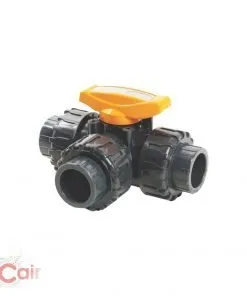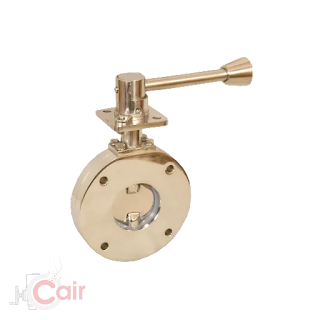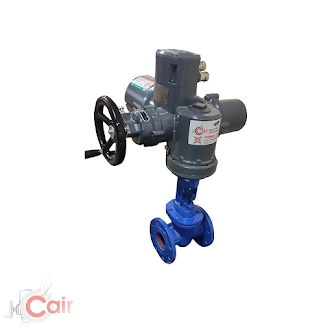The Benefits Of Installing A UPVC Valve In Your Home
Why is Having a UPVC Valve Fitted in Your Home So Beneficial?
Having a UPVC valve fitted in your home can provide numerous benefits. Firstly, UPVC valves are highly durable and can withstand extreme temperatures and pressure, making them ideal for plumbing and heating systems. This means they are less likely to develop leaks or other issues, reducing the risk of water damage and associated costs.
UPVC valves are also resistant to corrosion, which can be a common problem in traditional metal valves. This means they can last much longer and require less maintenance, saving you time and money in the long run.
In addition to their durability, UPVC valves are also highly energy-efficient. They have excellent insulation properties, which can help to reduce heat loss and improve the efficiency of your heating system. This can lead to lower energy bills and a more comfortable living environment.
Finally, UPVC valves are also environmentally friendly. They are made from non-toxic materials and can be recycled at the end of their useful life, reducing waste going to landfills.
Overall, having a UPVC valve fitted in your home can provide various benefits, from improved durability and energy efficiency to reduced environmental impact. If you want to upgrade your plumbing or heating system, it's worth considering UPVC valves as a smart and cost-effective option.
UPVC Valves: What Are They and How Do They Work?
UPVC valves are used in plumbing and heating systems to control water flow or other fluids. They are made from a type of plastic called unplasticized polyvinyl chloride (UPVC), which is highly durable and resistant to corrosion and chemical damage.
UPVC valves use a mechanism to open and close a passageway within the valve body. This passageway allows fluid to flow through the valve when it is open and stops the flow when it is closed. The mechanism used to open and close the valve can vary depending on the type of valve but typically involves a lever or a knob that is turned to control the position of a disc or ball within the valve body.
One of the main advantages of UPVC valves is their resistance to corrosion and chemical damage. This makes them ideal for use in systems where the fluid transported is aggressive or corrosive, such as in industrial or chemical applications. UPVC valves are also highly durable and can withstand extreme temperatures and pressure, making them suitable for various environments.
Another advantage of UPVC valves is their ease of installation and maintenance. Because they are made from plastic, they are lightweight, easy to handle, and can often be installed without requiring specialized tools or equipment. Additionally, UPVC valves require little maintenance and are less prone to developing leaks or other issues than traditional metal valves.
Overall, UPVC valves are versatile and reliable for controlling fluid flow in plumbing and heating systems. Their resistance to corrosion and chemical damage, durability, and ease of installation and maintenance make them popular for various applications.
Fitting a UPVC valve – is it Something You Can Do Yourself?
Fitting a UPVC valve is a relatively straightforward process that most people can do with some basic plumbing skills and tools. However, you may need more clarification about your abilities or are unfamiliar with plumbing systems. In that case, it is recommended that you seek a professional plumber's help to ensure the installation is done correctly.
Before beginning the installation process, choosing the right type of UPVC valve for your needs is important. This will depend on factors such as the size of your plumbing system, the type of fluid being transported, and your system's pressure and temperature requirements.
Once you have chosen the right valve, the first step in the installation process is to turn off the water supply to the area where the valve will be installed. Next, you will need to remove the existing valve or section of pipe where the new valve will be installed. This may require cutting the pipe and using couplings to attach the new valve.
Once the new valve is in place, it must be connected to the existing plumbing system using appropriate fittings and sealants. Ensuring all connections are tight and secure to prevent leaks is important.
After the valve is installed, it is recommended that you test it to ensure that it is working properly. This can be done by turning on the water supply and checking for any leaks or valve operation issues.
Overall, fitting a UPVC valve is something that most people can do with some basic plumbing skills and tools. However, suppose you need more clarification about your abilities or are unfamiliar with plumbing systems. In that case, it is always best to seek the help of a professional plumber to ensure that the installation is done correctly and safely.
What are the Benefits of Having a UPVC Valve Fitted in Your Home?
There are several benefits to having a UPVC valve fitted in your home. Firstly, UPVC valves are highly durable and corrosion-resistant, ideal for plumbing and heating systems. This means they are less likely to develop leaks or other issues, reducing the risk of water damage and associated costs.
In addition to their durability, UPVC valves are also energy-efficient. They have excellent insulation properties, which can help to reduce heat loss and improve the efficiency of your heating system. This can lead to lower energy bills and a more comfortable living environment.
UPVC valves are also environmentally friendly. They are made from non-toxic materials and can be recycled at the end of their useful life, reducing waste going to landfills.
Another benefit of UPVC valves is their ease of installation and maintenance. Because they are made from plastic, they are lightweight, easy to handle, and can often be installed without requiring specialized tools or equipment. Additionally, UPVC valves require little maintenance and are less prone to developing leaks or other issues than traditional metal valves.
Overall, having a UPVC valve fitted in your home can provide various benefits, from improved durability and energy efficiency to reduced environmental impact. If you want to upgrade your plumbing or heating system, it's worth considering UPVC valves as a smart and cost-effective option.
Are There Any Drawbacks to Having a UPVC Valve Fitted?
While there are many benefits to having a UPVC valve fitted, there are also a few potential drawbacks to consider. One of the main drawbacks is that UPVC valves may only be suitable for some applications. They have a lower maximum operating temperature and pressure than other valves, so they may not be suitable for high-temperature or high-pressure systems.
Another potential drawback is that UPVC valves may not be as aesthetically pleasing as other valves. They are typically made from plastic, which may not match the look and feel of other metal fixtures in your home.
Finally, while UPVC valves are generally easy to install and maintain, they may require more frequent replacement than other valves. This is because plastic materials can degrade over time, especially when exposed to high temperatures or chemicals.
UPVC valves remain popular for many homeowners and businesses despite these potential drawbacks. They offer a range of benefits, from durability and energy efficiency to ease of installation and maintenance. Ultimately, deciding to use UPVC valves will depend on your specific needs and requirements, so carefully weighing the pros and cons before deciding is important.




Comments
Post a Comment